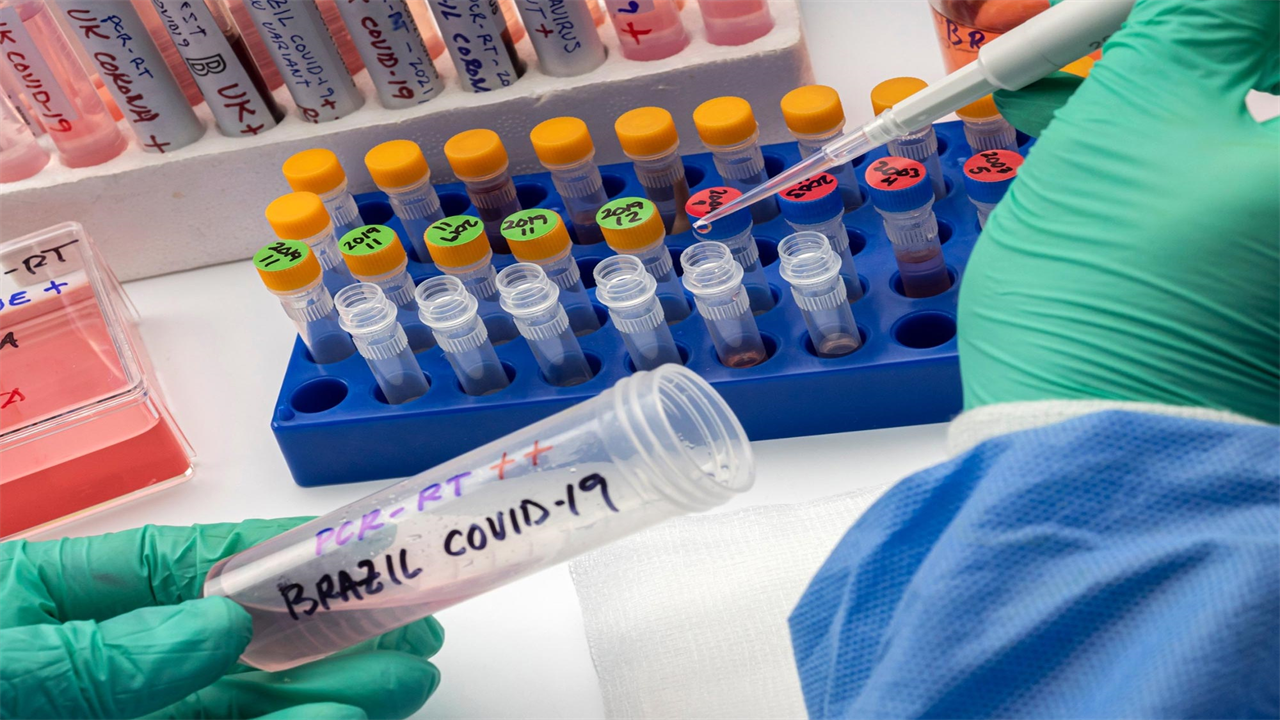CoronaVac COVID-19 Vaccine Is Less Effective Against the P.1 Brazil Variant
0 View
Share this Video
- Publish Date:
- 8 July, 2021
- Category:
- Covid
- Video License
- Standard License
- Imported From:
- Youtube
Tags

By European Society of Clinical Microbiology and Infectious Diseases July 8, 2021
A new study presented at this year’s European Congress of Clinical Microbiology & Infectious Diseases (ECCMID) and published in The Lancet Microbe shows that antibodies generated by CoronaVac, an inactivated COVID-19 vaccine, are less effective against the P .1 Brazil (Gamma ) variant.
It also suggests that the P.1 variant may be able to re-infect individuals who previously had COVID-19.
The SARS-CoV-2 virus spike protein is the primary target of neutralizing antibodies — antibodies that block the virus’s entry into cells — including those induced by vaccines. The emergence of variants with multiple mutations in this protein has raised concerns that neutralizing antibody responses, and thus the effectiveness of vaccination programs, may be compromised.
The P.1 variant was discovered in Manaus, Brazil in early January 2021 and has 15 unique mutations. Previous studies have found evidence that it can escape neutralization by antibodies. However, most of these studies used modified viruses and there is little information about the ability of the wild-type P.1 variant, with a complete set of mutations, to evade neutralizing antibodies in individuals previously infected with COVID-19 or who had been vaccinated with an inactivated vaccine.
dr. Jose Luiz Proença-Módena, Laboratory of Emerging Viruses, University of Campinas, Brazil, and colleagues studied the sensitivity of the P.1 variant to neutralizing antibodies in the serum of 53 subjects who had been vaccinated and 21 previously infected with SARS -CoV-2.
The results were compared with those for a B virus, one of the dominant strains in Brazil before the emergence of the P.1 variant.
The vaccinated group consisted of 18 individuals who received a single dose and 20 who received two doses of the CoronaVac-inactivated vaccine during the Brazilian vaccination program, plus 15 participants who received two doses during a trial.
CoronaVac is one of the key vaccines in Brazil’s national vaccination program and is approved for emergency use in Brazil, China, Colombia, Indonesia, Mexico and Turkey. Previous research from Brazil has shown it to be 50.7% effective in preventing symptomatic infections.
All blood samples from individuals with previous infections had high concentrations of SARS-CoV-2 specific antibodies. Tests showed that the P.1 variant was less sensitive to these antibodies than the B virus. Antibody concentrations had to be about nine times higher to neutralize the P.1 variant than the B virus.
Antibodies from vaccinated individuals were also less efficient at neutralizing the P.1 variant than the B virus. The antibodies of almost all people who received one dose of the vaccine (20-23 days earlier) as part of the immunization program and from all those who received two doses in the study (134-260 days earlier) had no detectable effect on the P.1 variant.
In contrast, the P.1 variant was still sensitive to the antibodies in the plasma of those who had received two doses in the immunization program (second dose 17-38 days earlier), but to a lesser extent than the B virus.
The authors say: “This study shows that antibodies present in the plasma of people with a history of COVID-19 or individuals vaccinated with CoronaVac were less efficient at neutralizing P.1 variant isolates than a B. -line isolate.
“Neutralizing antibodies are an important part of the immune response to SARS-CoV-2. Therefore, the ability of the P.1 variant to evade antibodies present in the plasma of CoronaVac-immunized individuals suggests that the virus may be able to circulate in vaccinated individuals – even in highly vaccinated areas.”
They add: “Our results also suggest that the P.1 variant can escape neutralizing antibody responses generated by previous SARS-CoV-2 infection and thus reinfection is possible.
“Therefore, continued and improved genetic surveillance of SARS-CoV-2 variants worldwide, combined with plasma neutralizing antibody testing, is required to guide updates of immunization programs.
“However, a phase 3 clinical trial showed that CoronaVac can protect against severe COVID-19 and death. Therefore, neutralizing antibodies may not be the only contributing factor — the T-cell response may also play an important role in reducing disease severity.”
Reference: “Neutralization of SARS-CoV-2 lineage P.1 by antibodies elicited by natural SARS-CoV-2 infection or vaccination with an inactivated SARS-CoV-2 vaccine: an immunological study” 8 Jul 2021, Lancet Microbe .
DOI: 10.116/S2666-5247(21)00129-4
Meeting: European Congress for Clinical Microbiology and Infectious Diseases (ECCMID)










